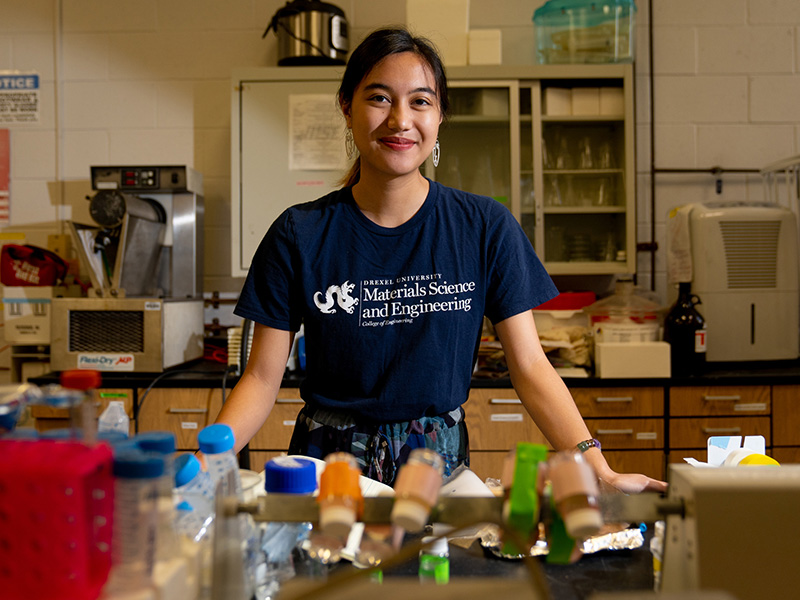
Alessandra Cabrera
Alessandra Cabrera isn’t one for standing still.
A self-proclaimed “bouncing around” kind of person, the Galloway, New Jersey native says that she has never been intent on settling down on one thing. It’s what led her to become a materials science and engineering major.
“I found materials to be a really good fit for me because it’s super interdisciplinary,” Cabrera says. “You can be working on polymers one day and electronics the next. You can get a job at NASA or even a food science lab. I just knew that the applications were limitless, and I liked the mindset. I love to ask questions and learn new things every day.”
If Cabrera’s restlessness is what led her to major in materials science and engineering, her inquisitiveness is what made her a STAR Scholar.
Now in its 20th year, the STAR (Students Tackling Advanced Research) Scholars Program is an opportunity for highly motivated first-year students to engage in an early faculty-mentored undergraduate research, scholarship, or creative experience during the summer after their freshman year. Students who participate in the STAR Scholars Program earn a stipend and live in free on-campus housing for the summer term while completing 350 hours of faculty-mentored activity.
For her STAR project, Cabrera is working with Caroline Schauer, PhD, Margaret C. Burns Chair in Engineering, Associate Dean for Research, and professor of materials science and engineering. As principal investigator in the Natural Materials and Polymer Processing group, Schauer is working to develop films infused with food waste to line cans to improve shelf life.
“In the canning industry, there’s a concept called active packaging, and that’s packaging that’s designed to either release chemical compounds to keep food fresh or absorb compounds from the food that quicken the spoiling process,” Cabrera says. “The projects is particularly interested in a thin film that’s used inside aluminum beverage cans to keep the contents fresh.”
Cabrera has helped to test different formulations for the films, using spent coffee grounds from the campus Saxby’s and leftover cranberries from a local drink company.
“Both of the food waste products have antioxidant properties, which means that they keep oxygen away from food,” she explains. “Once we have a polymer film made, we test it in different liquids to be sure it will hold up in a can.”
As a first-year student, Cabrera is cherishing the opportunity to work with more advanced researchers.
“It's really cool one grad student I work really closely with was also an undergrad at Drexel, and she's pursuing her PhD right now,” she says. “It’s great to have that level of mentorship and see someone in a position that I could aspire to.”
Cabrera is also grateful that the STAR program has helped her make a connection with Schauer.
“She's been a wonderful mentor,” Cabrera says. “I knew that going to this lab would give me an exploratory approach to the materials science, and that coming out of this summer, I would have tried a lot of different things I can carry with me as I move forward as a student.”